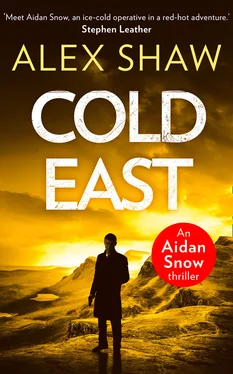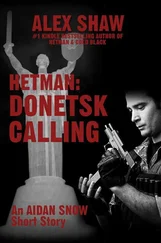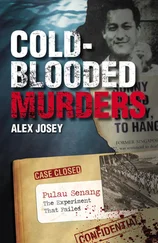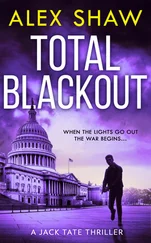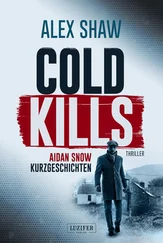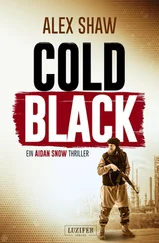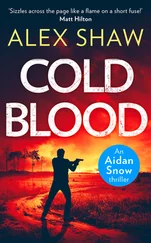‘That’s a fair point.’ Casey took a Glock 19 from his jacket and placed it on the bedside table. He turned it so the grip was within the Russian’s reach. ‘Here, take it, it’s loaded. You have my trust, Sergey, and I hope I have yours.’
Gorodetski slowly reached for the gun and was surprised to see that Casey didn’t flinch. He aimed the sidearm at the American, felt the weight, and then carefully lowered it. ‘It’s loaded.’
‘I told you it was.’
‘I could have killed you.’
‘You still can, if you want. I’m a good judge of character, Sergey, and I know you won’t. Call me romantic – my ex-wife doesn’t – but I know who you are… on the inside. I can tell. You’re not a stone-cold killer. So enlighten me, ease my confusion, and tell me. Why did you assassinate that father and son, Jas and Bav Malik?’
‘I was of the belief they murdered my brother.’
Casey was surprised. ‘And did they?’
‘No.’ Gorodetski pushed the Glock back. ‘They were innocent. I murdered them. I am a killer. I deserve a bullet to the brain.’
‘I could shoot you, but I won’t. I think I can use you, if you agree.’
‘I agree.’
Casey smirked. ‘Tell me more; treat this as a confession, not to a policeman but to a priest. Why did you believe these two men killed your brother?’
Gorodetski took a breath and recounted what he had been told was the truth. ‘In 1989 my brother, Mikhail, was in the Red Army. His commanding officer said their unit was attacked by Mujahideen outside Kabul. Mikhail was wounded, captured, then tortured before being dismembered. Much later his CO told me he had found two of my brother’s killers. They were living respectable lives with British passports.’
‘Did you find the real murderer?’
‘Yes.’
‘Did you kill him?’
‘Yes.’
‘Who was he?’
‘Mikhail’s commanding officer.’
‘How did that make you feel?’
‘Empty.’
‘I see.’
‘I was fooled, but that is no excuse. I executed two innocent men. There is not a night that goes by without me seeing their faces.’
‘We all make mistakes, Sergey – just ask my wife.’ Gorodetski scanned his fingers for a ring. There was none. ‘Exactly. Some mistakes are big, some small, and some monumental. I can give you a second chance, which no one else can; a chance to make a difference. Not many get that.’
‘Why should I believe you? You have thousands of SEALs or Delta or Rangers or Activity guys to choose from.’
‘Good question. I’m Agency. What I do, Sergey, is black – blacker than black. You could call it “Cold Black” – global counterterrorism. There are only four other men who know I have you, and one of those you kicked in the nuts. I get to choose my men, use Agency resources, and not get questioned. However, and this is where you come in, regardless of what you read in the press or see on WikiLeaks, we do not have unlimited resources – human or otherwise. In short, when the Cold War ended our threat radar was moved to point at the Middle East. Langley didn’t see a need for Soviet speakers, let alone native Russian-speaking operatives. But then Russia invaded Georgia, and then they annexed Crimea, and then they shot down a passenger jet while invading Eastern Ukraine. Langley made a mistake and I had a problem. I was thinking about how I could fix it when you appeared.’
‘Thanks.’
‘Don’t go getting any grandiose ideas; it was coincidence not serendipity. Are you a patriot?’
‘To Russia?’
‘Who else?’
‘The people, yes. The country, perhaps. The Kremlin? No.’
‘That’s very good to hear, if you mean it. I need to assess you and, even if, after that, you were to pass, you’d be strictly on probation. Make a mistake or step out of line and this file gets updated and sent along with you on a one-way ticket to London. Or, failing that, perhaps I throw you in the nearest river; it all depends on whether I’ve had a bad day or not.’
Gorodetski allowed himself a half-smile. ‘You should work at the Army recruiting office.’
‘Who said I didn’t? Here is your first test – an act of good faith you could call it.’ Casey picked up the file containing the information on ‘James East’. ‘I need something for the FBI to, how can I put this, ease your transition into my custody and persuade me I’m not making a mistake with you.’
‘I understand.’
Casey tapped the file. ‘Who was responsible for your legend?’
Gorodetski frowned. ‘Responsible?’
‘Where did you get your false identity from?’
Gorodetski paused for a beat before he spoke. ‘Tim Bull. He’s a high-school science teacher in Miami and an old KGB asset.’
‘And he’s gone freelance?’
‘For the right price. He doesn’t like the current Russian President.’
‘Who does?’ Casey shrugged. ‘I’m going to need everything you have on him.’
‘Agreed.’
‘It wasn’t a request, Sergey.’
*
Sol-Iletsk, Russia
Penal colony No. 6 in the Urals town of Sol-Iletsk was known as ‘Black Dolphin’ and officially classified as a ‘final destination’ prison. It was one of five Russian facilities where criminals sentenced to death were held, but by far the most ominous. Inmates unlucky enough to be sent there had no chance of escape and, unofficially, no hope of parole. The Black Dolphin’s seven hundred inmates represented Russia’s most brutal criminals and included murderers, cannibals, rapists, paedophiles, and terrorists. One of the seven hundred was a Chechen, Aslan Kishiev. Sentenced to full life imprisonment for his part in terrorist attacks on Russian civilian targets, he was nicknamed ‘mini-Laden’. Kishiev had been the de-facto leader of the Islamic International Brigade ever since its founder, Shamil Basayev, had been killed in 2006. Kishiev had continued the jihad against Russia until he was finally betrayed by a close friend. Outraged at the manner in which he had been captured, at his trial Kishiev had openly vowed revenge by offering a bounty for the informer’s head. This, however, had only added to the charges levelled against him. To mock Kishiev further, the Prosecutor General ensured the weasel gave evidence no more than ten feet away from where he stood. Found guilty on all twenty-three breaches of the Russian penal code, which included murder, torture, hostage-taking, illegal arms trading, terrorism, and armed rebellion, he had then learnt of his fate. Kishiev would live out the rest of his days at the notorious Black Dolphin, where he would be monitored twenty-four hours a day, forced to sleep with bright overhead lights switched on, and, from 6 a.m. to 1 p.m. every day, forbidden to sit on his bed. He would be liable to be checked every fifteen minutes by a passing guard and would live in complete isolation from the outside world. The Prosecutor General closed proceedings by stating that Kishiev would not be a martyr, he would simply be ‘forgotten’.
It had been a bitterly cold February afternoon in 2011 when Kishiev had arrived at his new home. Blindfolded with a black hood, he and the other new arrivals were made to walk from the prison truck to their cells, past a line of guard dogs barking viciously in their ears. Unable to see even his own feet, he had no idea if the dogs were on leads or if they would attack without warning. Once in his cell, a fifteen-day ‘educational introduction’ to his new life at Black Dolphin, a life that had been described as ‘death in instalments’, commenced. Each of the inmates of Black Dolphin had killed an average of five people; Kishiev, many more. The exact number of deaths his group were responsible for had never been truly calculated. He had been treated as a terrorist, but Kishiev saw himself as a soldier for Allah, a believer whose pacifist soul had been torn away, destroyed when his lands and faith had been mercilessly attacked by Russia. But as a terrorist, he had been thrown in with the worst filth Russia had to offer. He was forced to share a four-and-a-half-metre-square cell with a man from Murmansk convicted of cannibalism, a crime he hadn’t known still existed. Locked away in a cell within a cell, behind three sets of steel doors, it was a bleak, isolated, and hopeless existence.
Читать дальше
